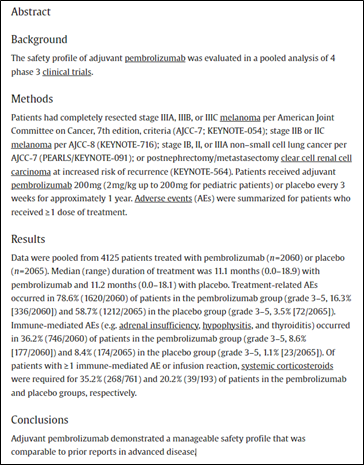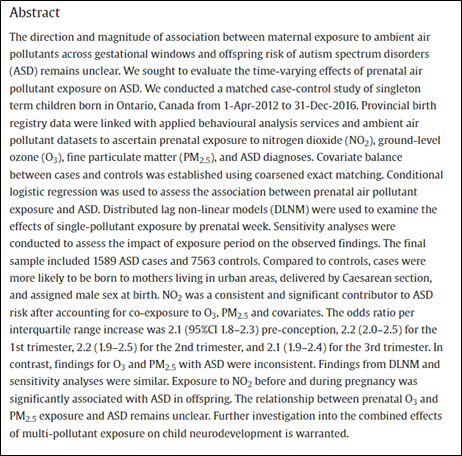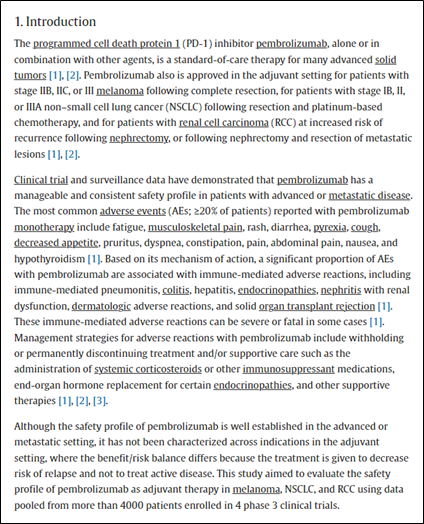Table of Contents
The abstract and the introduction are both crucial components of a paper, often positioned next to each other. While they may cover similar content, their writing approaches differ significantly. The abstract serves as a summary of the entire text, and on the other hand, the introduction sets the stage by highlighting the significance of the research and providing relevant background information.
In this discussion, we will delve deeply into the distinctions between the abstract and the introduction. We’ll begin by defining what they are, followed by a careful comparison of their characteristics, and conclude with detailed explanations of effective writing techniques, illustrated with examples. Let’s explore!
What is an ‘Abstract’?
An abstract is a concise summary of the different sections of your research paper, encompassing the research objectives, methods, conclusions, and other key elements. It typically also includes a statement on the novelty or relevance of your research and suggests directions for future work.
Meant to be a stand-alone summary, the abstract should cover all the essential elements of your study, allowing readers to quickly decide whether the paper aligns with their area of interest. Most journals have a strict word limit for abstracts; usually 10% of the total word count of the research paper.
Typically, the abstract should emphasize the key findings of your study and incorporate important keywords that reflect current trends in research. This not only aids in enhancing the visibility of your paper but also draws the attention of readers to your work.
The writing format of an abstract can generally be classified into two categories: structured and single paragraph/unstructured. The structured format delineates sections based on the paper’s structure, summarizing the background, methods, conclusions, and other elements separately, with subheadings for clarity. In contrast, the single-paragraph format combines all information into one cohesive paragraph1. A structured format with clearly delineated sections can help readers find specific information quickly and may be the preferred format for writing abstracts for some journals.
Here is an example of a structured abstract from a recent European Journal of Cancer publication2:

An unstructured abstract, on the other hand, combines these elements into a single paragraph, and is a great test of your ability to summarize . Below is an example of an unstructured abstract from the journal Environmental Research3 :

What is an ‘Introduction’?
The introduction is the first section of a research paper that follows the abstract. It provides the background information necessary for the reader to understand the topic and objective of the study. Importantly, the introduction highlights the gaps in what is currently known about the topic and how your research aims to address those gaps. While discussing and building upon previous findings to narrow down on the specific research objective, it is advisable to list previous studies in chronological order, complete with citations, explaining why the current study was warranted.
A well-written introduction sets the stage for the entire paper, distinguishing the known from the unknown in your research area. It demonstrates the importance of your hypothesis and clarifies how your findings contribute to the broader field. When writing an introduction, researchers should be concise and focus on relevant content, avoiding any unnecessary or redundant information.
To enhance clarity and readability in the introduction, researchers can utilize a segmented presentation format. Here is the an example of introduction section :

(This introduction and the segmented abstract in the previous article are selected from the same article2)
After understanding the differences between the abstract and the introduction, you may want to consider the following writing suggestions:
Abstract
- Writing Logic: Start with the research topic, explain the rationale for choosing it, present research hypotheses, and summarize research results.
- Provide readers with a comprehensive overview of the research without delving into excessive details.
- Conclude with a compelling statement to spark readers’ interest in the full paper.
- Ensure the accuracy of data. Any discrepancies between the abstract and the main text can undermine the credibility of the research.
- Adhere to the format requirements of the target journal, as different journals have varying regulations. For example, some may require segmented abstracts for specific categories of papers.
Introduction
- Summarize the research topic briefly while identifying the gaps the article aims to address. Citing relevant data or current trends can strengthen your argument.
- Clarify why this research direction was chosen and explicitly state the goals.
- Provide necessary background information and introduce research hypotheses by reviewing related studies.
- Outline key concepts and research methods that will be elaborated on later in the article, ensuring that readers grasp the context before engaging with the details4.
- Keep the text concise and avoid overwhelming readers with excessive information that may distract from the main points.
Conclusion
Often, writing the first few sections of your paper can feel like a daunting task. Understanding the differences between an abstract and an introduction is thus, crucial for crafting a well-structured and engaging research paper.
In addition to the writing suggestions above, consider partnering with a professional language service agency for efficient support. The editorial team at Elsevier Language Services comprises native English speakers with expertise across more than 100 subjects. We quickly identify the key issues in your manuscript based on top journal standards, offering customized guidance and suggestions that significantly enhance the quality of your work. This not only saves you time and effort but also alleviates concerns throughout the publication process. For more details, please click here to visit our official website.
Reference
- Chartier M. Abstract vs. Introduction: What is the actual difference? Fourwaves. Published December 7, 2022. https://fourwaves.com/blog/abstract-vs-introduction/
- Luke, Jason J., et al. “Safety of Pembrolizumab as Adjuvant Therapy in a Pooled Analysis of Phase 3 Clinical Trials of Melanoma, Non–Small Cell Lung Cancer, and Renal Cell Carcinoma.” European Journal of Cancer, vol. 207, 2024, p. 114146, sciencedirect.com/science/article/pii/S0959804924008025
- Murphy, Malia SQ., et al. “Association Between Prenatal Air Pollutant Exposure and Autism Spectrum Disorders in Young Children: A Matched Case-Control Study in Canada.” Environmental Research, vol. 261, 2024, p. 119706, sciencedirect.com/science/article/pii/S0013935124016116
- llis M. Here’s How to Write an Introduction (with Examples and Tips). Here’s How to Write an Introduction (Examples and Tips) | Grammarly. Published May 8, 2018. https://www.grammarly.com/blog/how-to-write-an-introduction/













